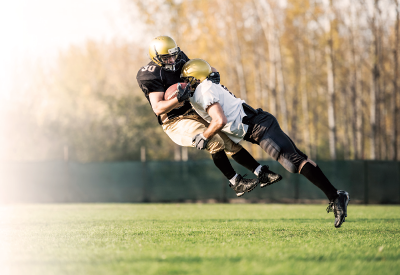Could Changes in Tau Predict Recovery Following Sport-Related Concussion?
Abstract
By some estimates, as many as 3.8 million sport-related concussions occur annually in the United States.
Despite the millions of sport-related concussions that occur in the United States each year, there remains no good way to predict recovery and an athlete’s readiness to “return to play” following the injury. A study published February 7 in the journal Neurology suggests that tau protein levels collected hours after a concussion may offer clues about how long it might take an athlete to recover.

Determining when an athlete can return to play remains a topic of much debate. In recent years, the National Collegiate Athletic Association (NCAA) has faced several lawsuits related to the handling of concussions among young athletes, including 43 pending class-action lawsuits by Division I football programs.
According to the NCAA document titled “Diagnosis and Management of Sport-Related Concussion Best Practices,” athletes experiencing a sport-related concussion must be removed from play and must not return to sport-related activity for at least one calendar day. “Once a concussed student athlete has returned to baseline level of symptoms, cognitive function, and balance, then the return-to-play progression can be initiated.” This stepwise return to play is meant to ease the player back to competition while maintaining a close eye on symptoms.
“Athletes who return to play before full recovery are at high risk for long-term symptoms like headaches, dizziness, and cognitive deficits if they have a subsequent concussion prior to full recovery from a concussion,” explained study author Jessica Gill, R.N., Ph.D., chief of the Brain Injury Unit at the National Institute of Nursing Research (NINR). “Our study shows that measuring tau protein levels could potentially be an unbiased tool to help prevent athletes from returning to action too soon and risking further neurological injury,” she told Psychiatric News.
For the study, Gill and colleagues followed 632 players of NCAA Division I and Division III contact sports that included soccer, football, basketball, hockey, and lacrosse. The players underwent plasma sampling and evaluations for cognitive performance and postural stability (ability to balance) prior to sport seasons between 2009 and 2014. A total of 46 athletes experienced a sport-related concussion, after which plasma samples were collected at six hours, 24 hours, 72 hours, and again seven days after injury. The researchers also collected information on the athletes’ cognitive performance and postural stability seven days after the injury.
Gill and colleagues found that athletes who took longer to return to play following a concussion tended to have higher tau concentrations overall, even after controlling for sex. Specifically, the authors found that higher levels of plasma tau measured at six hours following sport-related concussion were associated with a return to play of 10 or more days.
“Together these findings suggest that changes in total tau within six hours of a sport-related concussion may provide vital information about RTP [return-to-play] decisions and may serve to mitigate the negative consequences of returning to play prematurely,” Gill and colleagues wrote.
Dave Barron, D.O., director of the Global Center for Exercise, Psychiatry, and Sports at the University of Southern California, who was not involved with the study, told Psychiatric News that more research is needed to determine if tau can assist in making return-to-play decisions.
“The final story is not yet told, and only a well-controlled, prospective clinical trials will answer it,” said Barron, chief of psychiatry at the Keck School of Medicine.
This study was supported by the National Institutes of Health. ■
An abstract of “Acute Plasma Tau Relates to Prolonged Return to Play After Concussion” can be accessed here.



